|
Your phone won't work. Water isn't coming from the tap anymore. Your car won't move. Your refrigerator is warming up. The lights won't turn on. There's no radio or television. THERE'S NO POWER!
I couldn't put this book down![/caption]While browsing book covers (which always helps to inspire me) I came across The Rule of Three by Eric Walters. After reading the book synopsis I was drawn in. I originally read the book on my Kindle, but have since purchased a hardback copy to sit next to the just released hardback of Fight for Power, Book 2 in the series. The Rule of Three made me consider my preparedness in the event something catastrophic happens. I began running through a list of questions on how I would protect and provide for my family should our world, as we know it, come to a sudden stop. Yes there has been a lot of focus on this in the entertainment industry in recent years and I'm not talking about dystopian novels like The Hunger Games, Divergent, or Matched. I'm talking about near-time dystopian stories like the current TV show Revolution or Jericho from a few years back. Add these TV dramas to the craze of zombie movies like World War Z and shows like The Walking Dead (which I don't watch because zombies terrify me) and a reality show like Preppers and you have to stop and ask, "Am I ready if everything changes in the blink of an eye?" All with the exception of Preppers the above shows and books are fictional portrayals of what could be around the next minute of our lives and you might shrug off the possibility something could happen. But if you've been paying attention to the news you'll find plenty of real stories that make these realities just hours away from possible. For example a mutation of the Ebola virus that became airborne, a cyber attack on our nation's power grid, a biological, chemical, or nuclear terrorist attack by Al Qaeda or ISIS, the Russians deciding Ukraine isn't enough and they want or need all of Europe so they strike us with tactical nukes, maybe the Chinese with their vast military and small but capable nuclear arsenal are hankering for more resources and territory so they have to bump off their biggest competitor in the region; us, a solar flare that takes out or disrupts our power grid and communications network of towers and satellites. So now that you won't sleep tonight take a moment and read the interview I did with Eric Walters author of The Rule of Three. Brock: Eric, first of all thank you for answering these questions about your book The Rule of Three. I found this book to be an amazing tale of a reality just moments away at any time. What was your inspiration or motivation behind writing The Rule of Three? Eric: I’ve always liked science fiction and dystopic stories so I thought I’d try my hand at writing one. Brock: Good answer. I tend to do that when I start thinking of new stories. I center in on what I myself enjoy reading. The title to the book actually has a meaning inside the story, what is "The rule of three?" Eric: You can last three minutes without air, three days without water, and three weeks without food. Brock: In your words and three sentences tell my readers what The Rule of Three is about? Eric: An event robs the world of computers, electricity, transportation and communication. A neighborhood bands together to try to create a safe haven where they can survive. Other groups try to take their survival away. Brock: Well described. Eric, how many books are planned for the series? Eric: The second, Fight For Power, is out in January, and the third – which I just finished editing today – is called Will To Survive and comes out in January 2016. There could be a fourth – we’ll see! Brock: A whole year? Yikes I'm not sure I can wait. And if there is a fourth book I'll really be in trouble. It's a bit of a conundrum, I want the story to keep going, but I don't want to wait that long to finish it. The setting for the story is a place anyone of us in a modern society could find ourselves living. To me that makes the story all the more chilling. Why did you choose to place your story in the now instead of the far future? Eric: Most dystopic novels seem to involve some undefined time in the future, a place in space, or hinge on something bizarre like zombies. This story is more disturbing because it happens right now, right here. This is what would happen if suddenly the lights went down. This is what would actually happen. Brock: You're absolutely right about the "now" being the secret sauce on making it more disturbing. Readers can't help but place themselves in Adam's shoes and consider what they would face. I’ve recently read several news articles about how vulnerable the United States power grid is to terrorism, both cyber and otherwise. Were these articles an influence on your writing, or your choosing of this topic? Eric: I think we like to believe we’re too ‘civilized’ to allow a complete disintegration of society. I think the power failure on the East Coast in 2003 and Hurricane Katrina in New Orleans showed how thin that veneer of civilization really is. There is a greater level of vulnerability that any of us would like to admit. Brock: True, when we're faced with survival and protection of the very ones we love, we can feel helpless, which can make us desperate. How real do you think the threat to our power grid is? Eric: I remember clearly the blackout of 2003. That was simply a cascading series of accidents that nobody tried to make happen. What if somebody deliberately overloaded the system through a cyber-attack? Brock: And not only are there large sophisticated countries that don't like us, but there are terrorist organizations, and groups of hackers. If our countries (United States or Canada) went dark, do you believe that the governments would be unable to respond? Does the book reflect what you truly believe would happen in the aftermath? Eric: If civilization crumbled the way the book describes than no government would be able to respond. The responders would be reduced to simply trying to protect their own families and would be robbed of the tools to respond – no transportation, no communication, no computers. Brock: We rely so much on electricity. This winter our power went out for a couple of hours and our heat wouldn't work because our thermostat unit runs on power and doesn't have a battery backup. I think of water, if we didn't have power here in Colorado for our water plants to pump the water to us, we'd be without. Unlike where I lived in Illinois, water isn't abundant. Tell my readers about the characters in the series. Why did you choose to focus on a high school boy as your main character? What makes Adam special? Eric: There’s an exciting dynamic involved with being that age. Those of us who are older can all remember that time of our lives – the excitement, the uncertainty and trying to figure out the future. Adam possesses a morality, a belief in doing the right thing even when things are desperate. It’s his inherent morality that drives the story. Brock: Herb is a very interesting character, and one whose secrets I look forward to learning about in the rest of the series. Tell us about Herb and Adam’s relationship. How do you see their bond? Why would Herb choose someone like Adam to invest in? Eric: I love Herb as a character. The ‘old man’ who is more than some guy who yells at you for being on his lawn. I see so much of this story as not only Herb using his skills and experience but also him seeking redemption, trying to make up for the things he’d done in his life. Herb will continue to be revealed through the next two books. Brock: Tell us about Lori and why you chose to include her character in the books? Can you share one fact with us about Lori that’s not in the books? Eric: Lori is strong. Her strength will be revealed more in the coming books. She’s a much better shot than Adam and saves him on one occasion. Brock: Further I enjoyed the short e-novella, Nothing to Fear, you wrote about Lori and Adam. Why did you choose to focus on their relationship in the novella? Eric: Even with the entire world falling to pieces there are some things that are even stronger. Despite everything going on it wouldn't change how they felt toward each other. Brock: What sort of research did you have to do for The Rule of Three? For example using Chlorine tablets to purify water and ultralight flying. Eric: I read books about surviving disaster, consulted with engineers, airplane pilots and preppers to help with the authenticity of my story. Brock: Have you ever flown in an ultralight? Eric: I would never get into an ultralight! Those things are terrifying! Brock: You did a great job or putting a few comedic moments in the book as well as a budding romance. Why did you find these two elements important to include in the series? Eric: I worked in a hospital E.R. for 18 years. Bizarre, strange humor seems to be a part of the most desperate situations. I thought the story needed humor to temper what the characters were going through and form a counter-point to action. Brock: What can we expect in Fight for Power? Eric: The action heats up as the world becomes more desperate. Brock: Will we meet any new characters in Fight for Power? Eric: A few new characters but mainly twists with existing characters. Brock: What is your thought on the ‘phenomenon’ of prepping or those people who we refer to as ‘Preppers?’ Eric: I can see where they’re coming from. Writing this trilogy has made me more aware about the possibilities and the need to prepare. My family has talked about what we’d do in the event of an ‘incident’. We know where we’d meet and what we’d do. Does that make me paranoid or realistically prepared? I guess you have to decide. Brock: Can you give us the top five items you would stock up on in preparation for an event like what occurs in your books? Eric's List:
Eric: I hope there’s no possibility . . . but it’s better to be prepared. Brock: Eric, how has your faith impacted your writing? Eric: It’s amazing how much my faith and beliefs have found their way into my writing. Looking back at my books I realize that I’ve actually written sermons into four different books and the concepts of faith and hope are constantly there. I never try to ‘hit somebody over the head’ with my beliefs but they are fairly solidly embedded in the thoughts, actions and beliefs of my characters. Even in a book like Shaken – built around the Haitian earthquake – my characters questioning faith is the foundation on which his faith is ultimately confirmed. Brock: Have you embedded any spiritual themes within The Rule of Three? Eric: In The Rule of Three the concept of morality, acting correctly and not allowing situational ethics to overwhelm a belief system. Brock: Do you have a favorite Bible verse and what is it? Eric: I’m very much a follower of James. I believe that your actions are the definition of who you are. It may sound strange for a writer to say, but it doesn't matter what you say, it’s what you do, that matters. It isn't a Biblical quote but my favorite from St. Francis, "Preach the Gospel every day and if necessary use words." Brock: Can you tell me a little about Creation of Hope. What is it? How did that come about? Eric: This program was founded by my wife and I and a family in Kenya, Ruth and Henry. We were visiting Kikima, Kenya and found an area with 25,000 people including 500 orphans – many living on the streets, sleeping in garbage dumps, living and dying without care or support. We started with one orphan, which became 4, then 40 and now close to 400 orphans and impoverished children are being supported on a regular basis. We have 55 children in our residence and 42 children in residential high school or post-secondary with the rest being in the homes of extended family members. We have 118 sponsored children – with 15 of these sponsored by Kenyans – as well as sponsors in the U.S. and Germany. Last year we had over 100 schools involved and we promised schools that 100% of funds would go directly to service and we show them exactly how we spent their money. We believe in complete accountability and transparency and through the website we try to show each month how money is raised and spent. My wife and I spent close to 30 hours per week administering the program. It is a great deal of work, but more than that, it is a true blessing for us. We are practicing our faith through our actions. Brock: It's heartwarming to know that other authors are using their time and talents to share the plight of the orphan as well as to highlight the needs of these impoverished nations. I myself work for a ministry called Compassion International. It's a wonderful Christ centered ministry that provides holistic development for children in poverty in 26 countries. Eric: I know Compassion International and the high standards it maintains. God bless you for what you’re doing! Brock: Eric thank you for your answers and for shedding more light on The Rule of Three and Fight for Power. And thank you for being open about your faith and for the amazing ministry you founded and are leading in Kenya. You can learn more about Eric Walters on his website EricWalters.net and Creation of Hope at CreationofHope.com.
1 Comment
|
Follow meArchives
May 2024
Categories
All
|
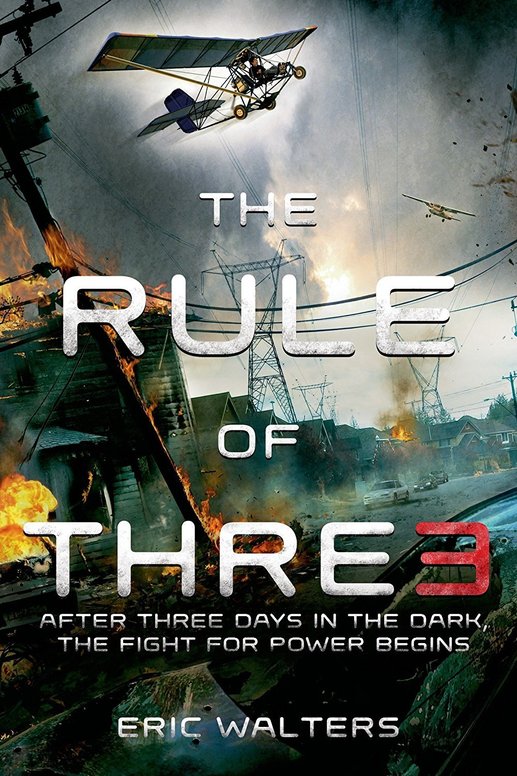
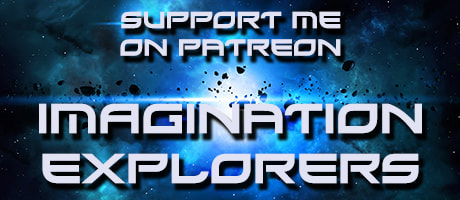
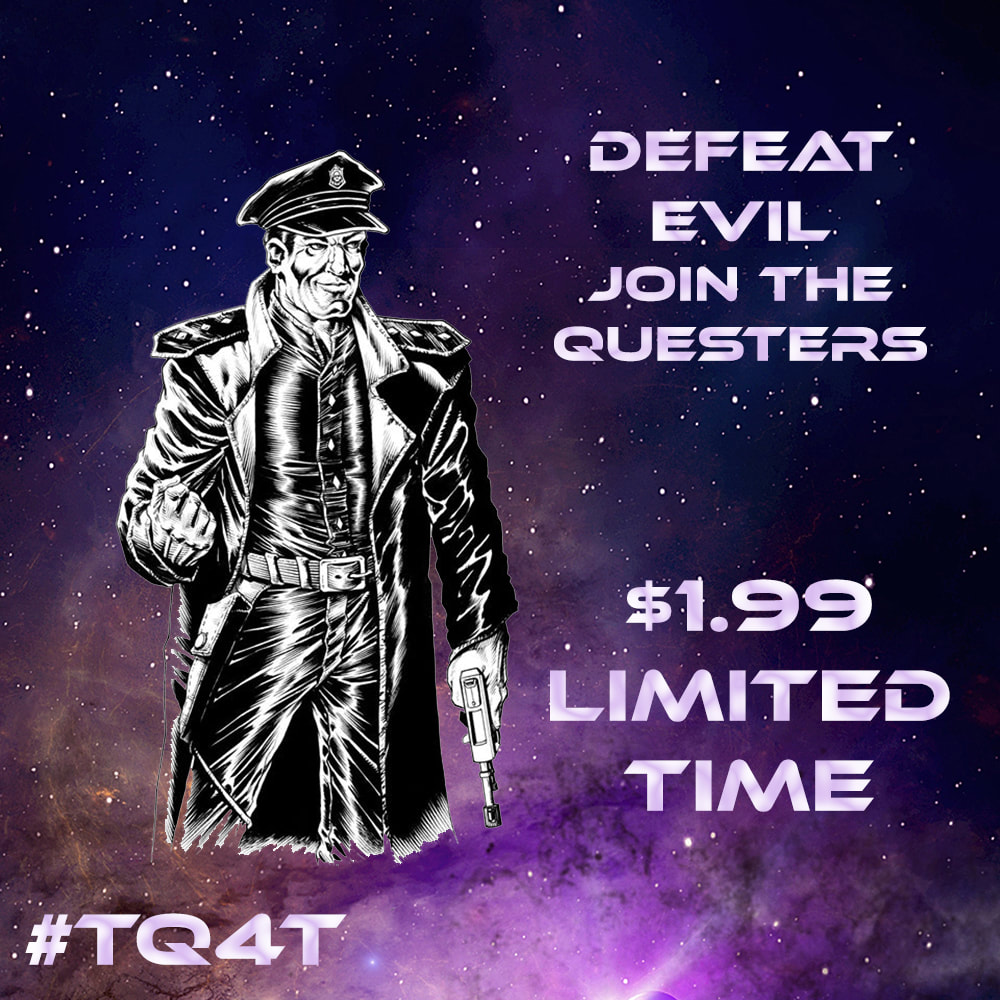
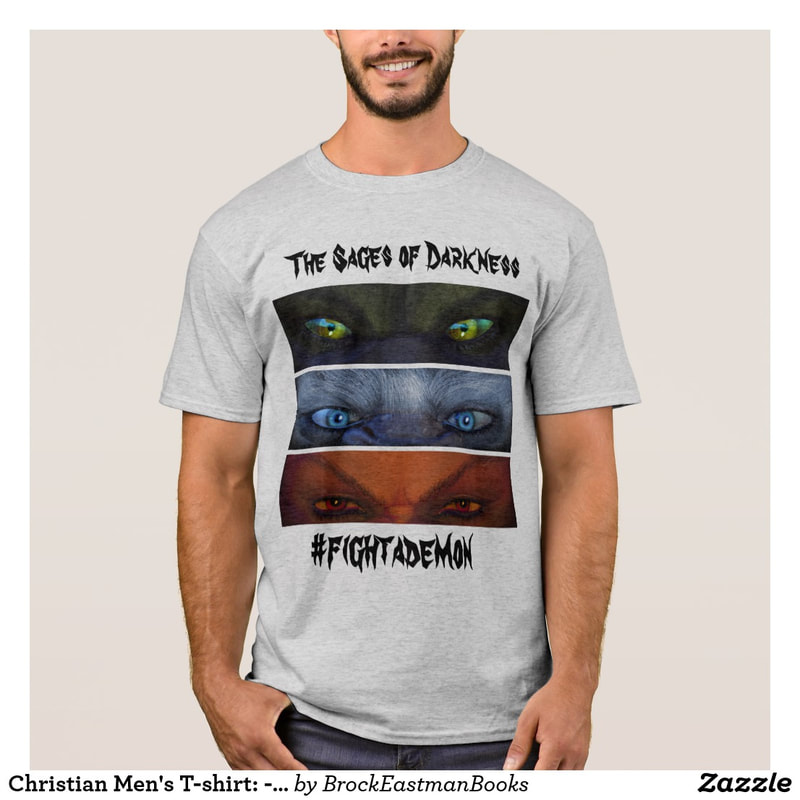

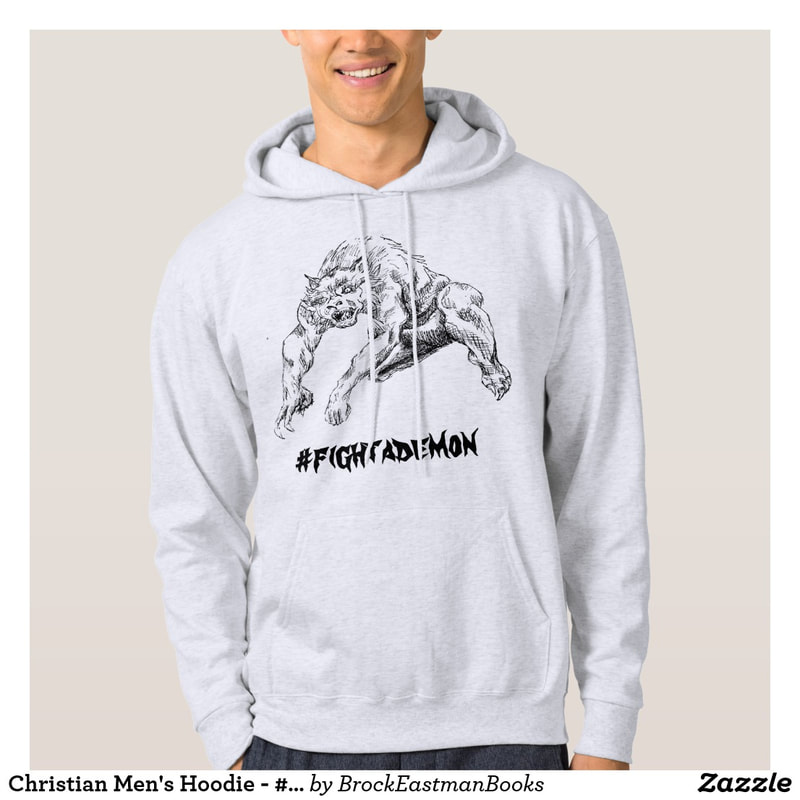

 RSS Feed
RSS Feed